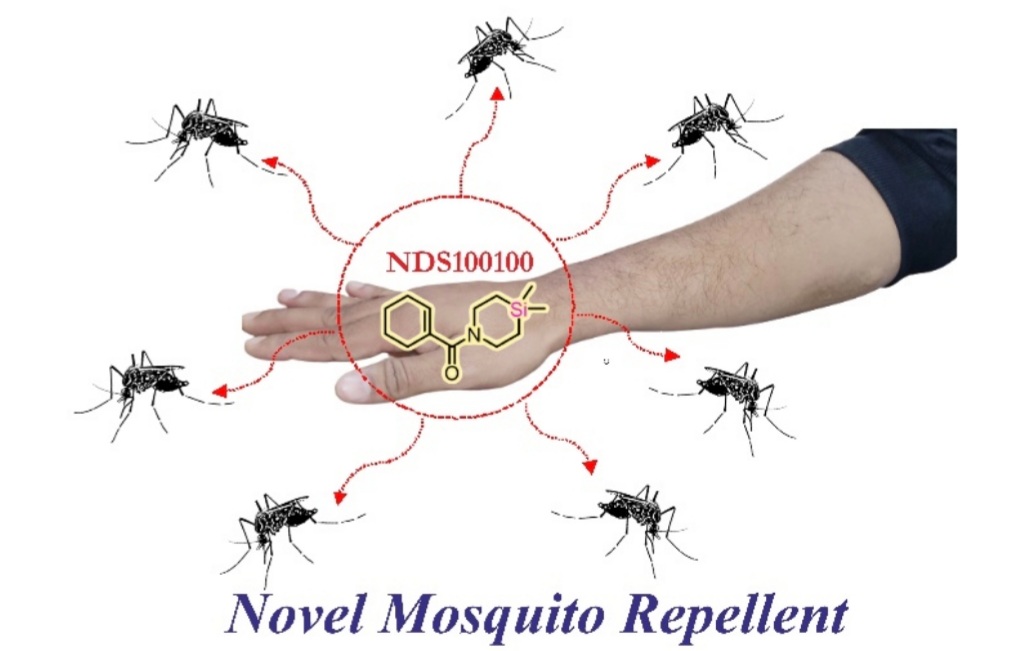Novel Mosquito Repelling Molecule Identified By NCL Pune Team

Pune, November 17, 2021: A team of researchers from CSIR-National Chemical Laboratory (CSIR-NCL), Pune, has synthesized a potent molecule that helps repel adult females of Aedes aegypti mosquitoes. These mosquitoes are vectors of several debilitating and often fatal diseases such as dengue and chikungunya and are also vectors of the Zika virus. During the Coronavirus pandemic, several states in India reported an alarming increase in dengue, chikungunya, and Zika virus cases, putting an additional burden on already stretched medical facilities due to Covid-19.
A research team led by Dr. D. S. Reddy (who is currently Director of CSIR-Indian Institute of Integrative Medicine, Jammu) used the “silicon switch” approach to synthesize a library of compounds based on the DEET scaffold, which is today’s gold standard insect repellents. Out of the 25 compounds synthesized, one of the molecules (NDS100100) offered a longer protection time than DEET (N,N-Diethyl-meta-toluamide), suggesting that incorporation of silicon improves efficacy. Results of this exciting study have been published in the journal ACS Omega (https://doi.org/10.1021/acsomega.1c04961).
The lead authors of the paper, Dr. Sen and Dr. Reddy, are confident about the prospects of findings. However, the identified molecule needs to undergo several studies, including long-term safety assessment, before it reaches the market. The discussions are on their way with some leading companies to take forward this insect repellent molecule for further studies towards commercialization. The research team included Akshay S. Kulkarni, Remya Ramesh, Safal Walia, Shahebaz I. Sayyad, Ganesh B. Gathalkar, Seetharamsing Balamkundu, Manali Joshi, Avalokiteswar Sen, and D. Srinivasa Reddy.
ADVT






